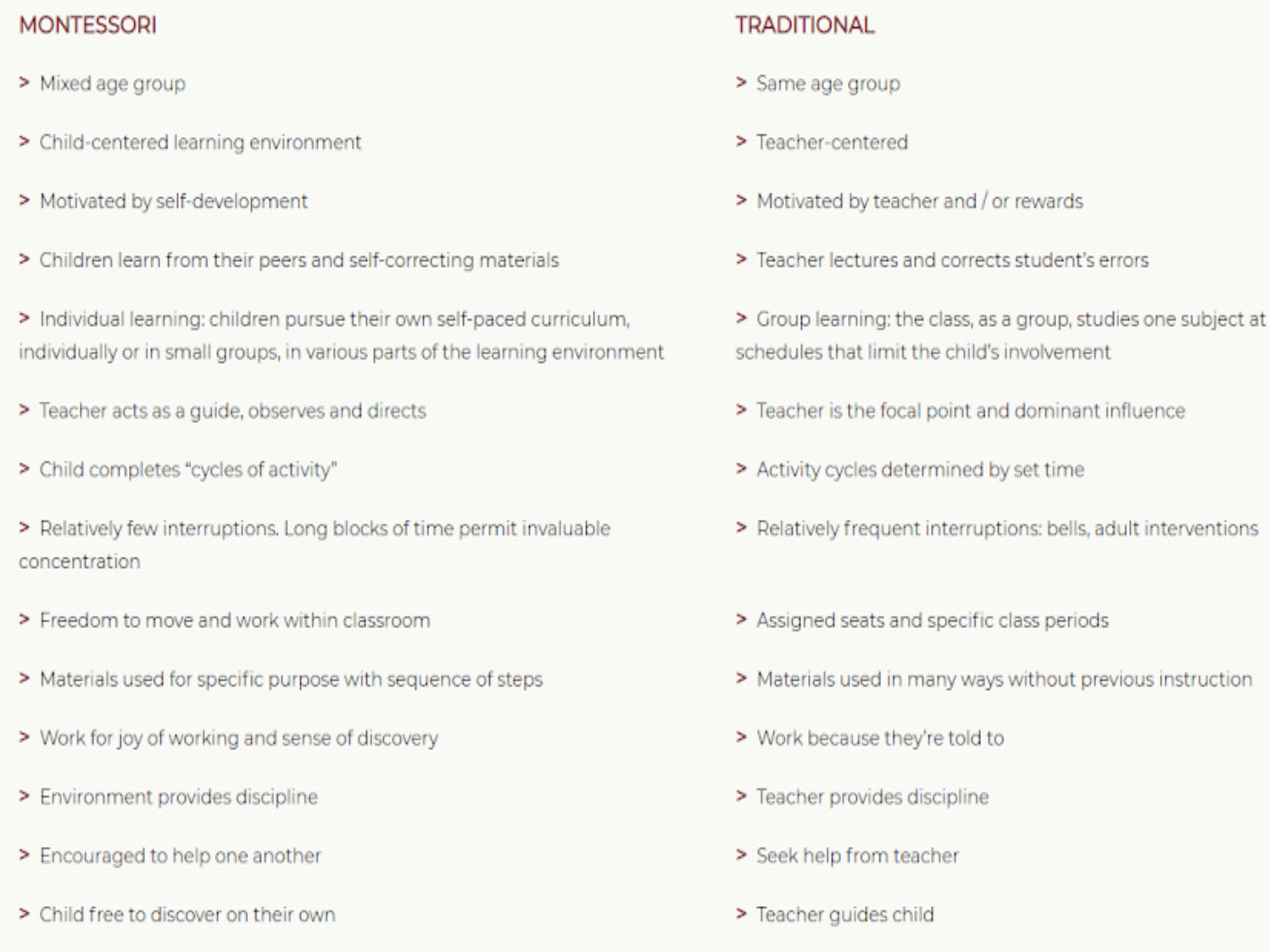What is Montessori?
Dr. Montessori was Italy’s first female physician. She dedicated herself to helping children have a better chance in life through education. She also believed that education is the only means to bring about sustainable world peace. Her ideas and theories were revolutionary in her time over 100 years ago; however, they have withstood the test of time. Montessori schools are growing in number around the world. Neuroscience and current educational research support her theories and many of her ideas are now accepted as mainstream concepts.
Dr. Montessori’s theory about childhood development was based on a lifetime of experience working and observing children rather than on any preconceived notion of how children developed. She discovered that children have immense creative powers within themselves, and recognized that their spiritual development is central to their growth. By spiritual, Dr. Montessori, referred to the will and the mind. Children learn through direct interaction with their environment and go through distinct phases of development. In each phase, the child has unique developmental needs that need to be adequately addressed.
Dr. Montessori devised her educational philosophy and curriculum around the unique developmental needs of the child at each phase of development.
The Benefits of Montessori
The benefits of Montessori education is aptly summarized in the research paper “Optimal Development Outcomes: The Social, Moral, Cognitive, and Emotional Dimensions of a Montessori Education” by Annette Haines, Kay Baker and David Kahn.
Social Development
- Self-discipline increased independence derived from new skills and competencies
- Knowledge of appropriate and prosocial behaviors
- Patience and the ability to share
- Respect for others
- A willingness to abide by rules to create social order
- Desire to serve society and humanity
Emotional Development
- Pleasure in purposeful activitySerenity, calmness, satisfaction, emotional equilibriumHappiness, joy
- An anxious concern for life
- Love for people and things
- Emotional wellness
- Warm, expressive, outgoing and optimistic personalities
- Cognitive Development
Moral Development
- Perseverance, good work habitability to choose
- Self-discipline
- Independence
- Mental balance
- Sublimation of the possessive instinct
- Care and respect for the environment and for others
- Willingness to abide by rules to create social order
- Development of morality
- Understanding of the connection between one’s actions and the needs of others
Cognitive Development
- Clarification and classification of impressions absorbed
- Increase in knowledge and vocabulary
- Refinement of sense perception and discrimination
- Logical/linear thinking
- New skills and competencies
- Sustained interest
- Augmentation of the intellect
- Language and mathematics
- Total development of the child
Montessori Compared with a Traditional Curriculum


